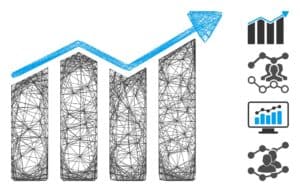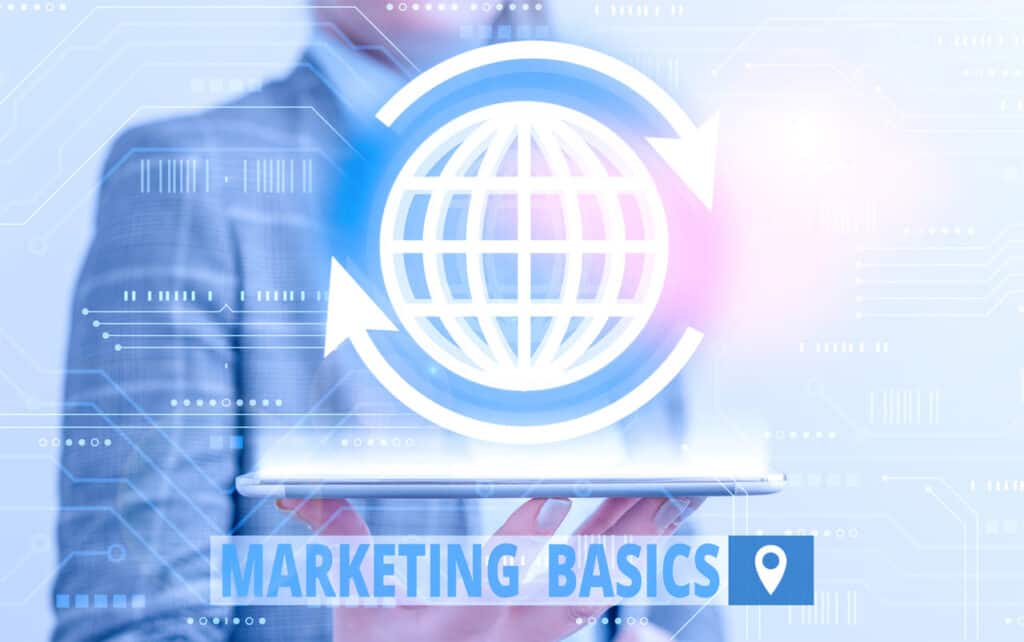It’s crucial for businesses to have effective salesperson tracking software in place to monitor and optimize their sales team’s performance. When deciding on the right software for your organization, it’s important to consider key features that will help you make informed decisions and drive sales growth. From real-time tracking and reporting capabilities to integration with CRM systems and customizable dashboard views, here are the top features to look for in salesperson tracking software. By leveraging these tools, you can empower your sales team to reach their full potential and achieve your business goals more efficiently.
1. User-Friendly Interface
A user-friendly interface in salesperson tracking software streamlines interactions through its intuitive design, centralizing critical metrics and activities for effortless performance monitoring.
Its importance is rooted in enhancing software productivity and user adoption rates among sales teams.
By offering an interface that’s easy to navigate, the learning curve for newcomers is reduced, significantly improving the user experience and encouraging software utilization in daily operations.
Essentials of a High-Quality User-Friendly Interface
- Intuitive Dashboard Design: Quickly displays essential data for efficient monitoring and decision-making.
- Mobile Accessibility: Facilitates real-time data access and team updates from any location.
- Customizable Layouts: Offers layout personalization to suit various workflow preferences, boosting productivity.
- Simplified Navigation: Ensures effortless information and feature retrieval, saving valuable time.
- Visual Clarity: Employs straightforward visuals to simplify complex information, facilitating quicker insights.
- Quick Data Entry and Updates: Reduces manual input, allowing more focus on core sales tasks.
A salesperson tracking software equipped with a user-friendly interface goes beyond simplifying operations; it empowers sales teams to leverage essential tools effectively.
These key features are designed for ease of use and to enhance the sales process, enabling teams to achieve and exceed their goals efficiently.
2. Real-Time Analytics and Reporting
This refers to the live tracking and analysis of sales activities and outcomes. This dynamic feature allows sales teams to monitor Key Performance Indicators (KPIs) such as sales revenue, conversion rates, and customer engagement in real time.
The significance of real-time analytics lies in its ability to provide immediate insights into sales performance, enabling managers to make quick, informed decisions.
With instant access to data, sales strategies can be adjusted on the fly to improve outcomes and drive revenue growth.
Key Aspects of Effective Real-Time Analytics and Reporting
- Comprehensive KPI Tracking: Monitors vital sales metrics live for immediate insight into team performance.
- Customizable Reporting: Allows users to tailor reports to specific needs, selecting metrics, time frames, and visualization options.
- Automated Report Generation: Offers scheduling options for automatic report creation and distribution, streamlining the information-sharing process.
- Data Visualization Tools: Includes graphs, charts, and heat maps to make data analysis more intuitive and actionable.
- Performance Benchmarking: Enables comparison of individual or team performance against set goals or industry standards.
- Actionable Insights: Delivers not just data, but interpretable insights that suggest clear actions to improve sales outcomes.
This strategic advantage ensures that sales efforts are always aligned with business goals, maximizing efficiency and driving sustained revenue growth.
3. Integration Capabilities
These refer to the software’s ability to seamlessly connect and communicate with other systems, such as Customer Relationship Management (CRM) platforms.
This feature is pivotal for ensuring that data flows smoothly between systems, offering a unified and comprehensive view of sales activities.
By ensuring that your salesperson tracking software can integrate seamlessly with your existing CRM and other tools, you’re streamlining workflows and enriching the data ecosystem that informs your sales strategies.
Key Aspects of Robust Integration Capabilities
- CRM Compatibility: Easily syncs with leading CRM systems to centralize customer data and sales activities.
- Third-party App Integration: Supports connections with essential sales tools, including email, project management, and communication platforms.
- Data Synchronization: Offers real-time or scheduled data updates between systems, ensuring accuracy and currency.
- Custom Integration Options: Provides tools or APIs for customizing integrations to meet unique business requirements.
- User Experience Enhancement: Enhances the user interface and experience by incorporating data and functionality from integrated apps.
- Scalability: Facilitates the addition of new integrations as business needs evolve and new tools are adopted.
Effective integration capabilities ensure that sales teams have access to the tools and data they need to drive insights, make informed decisions, and ultimately, boost sales productivity and outcomes.
4. Geolocation and Route Planning
These leverage GPS technology to optimize field sales operations. These features allow sales managers to visualize the real-time locations of their team members on a map and plan the most efficient routes to prospects or customers, ensuring no time is wasted on unnecessary travel.
By guiding sales representatives along the most efficient paths and ensuring they’re always closest to their next lead, businesses can maximize face-to-face selling opportunities and minimize fuel expenses and travel time.
Essentials of Advanced Geolocation and Route Planning Features
- Real-time Tracking: Allows managers to view the exact location of sales reps in real time, enhancing coordination and response times.
- Efficient Route Optimization: Automatically calculates the most efficient travel routes to minimize time and distance between meetings.
- Lead Proximity Alerts: Notifies sales reps about nearby leads or customers, enabling spontaneous visits or follow-ups.
- Historical Data Analysis: Stores route history for analysis, helping to identify patterns and opportunities for further optimization.
- Customizable Territories: Enables the definition of sales territories based on geographic areas, optimizing coverage and workload distribution.
- Integration with CRM: Syncs geolocation data with CRM systems to provide a comprehensive view of sales activities and customer interactions.
Implementing these technologies propels your sales strategy forward, leveraging the power of precise location data to carve out a competitive edge in the fast-paced world of field sales.

5. Communication Tools Integration
This means embedding email, phone, and messaging functionalities directly into the system.
This feature facilitates immediate and streamlined communication with clients and leads, eliminating the need to switch between different applications.
The significance of this integration lies in its ability to simplify the sales process and enrich customer interactions. By centralizing communication channels, sales teams can boost their productivity, ensuring that all client information and communication histories are easily accessible in one place.
Core Aspects of Effective Communication Tools Integration
- Unified Messaging Platform: Combines email, phone calls, and messaging apps into one interface for simplified communication.
- Contact Synchronization: Automatically updates client contact details across all integrated communication tools.
- Instant Access to Communication History: Provides quick retrieval of past interactions with clients for context in ongoing communications.
- Automated Communication Logs: Logs all communications automatically, ensuring that every interaction is recorded and easily accessible.
- Easy Appointment Scheduling: Integrates with calendars to allow direct scheduling of meetings and calls from within the software.
- Customizable Templates: Offers customizable email and message templates to speed up routine communications and ensure consistency.
By focusing on these key aspects, salesperson tracking software with integrated communication tools not only streamlines the sales process but also significantly improves the quality of customer interactions.
6. Data Encryption and Privacy
These refer to the measures and technologies used to protect sensitive information from unauthorized access. Encryption converts data into a coded format that can only be read with a key, while privacy controls manage access levels within the software.
Ensuring that sales data and client details are encrypted and access is tightly controlled helps maintain customer trust and compliance with data protection regulations.
Critical Aspects of Data Encryption and Privacy Features
- End-to-End Encryption: Encrypts data at its origin and decrypts it only at its final destination, preventing unauthorized access during transmission.
- Access Control Policies: Allows administrators to set granular access levels, ensuring that users can only access the information necessary for their role.
- Regular Security Audits: Conducts periodic reviews and updates to security measures to address new threats and vulnerabilities.
- Compliance with Data Protection Laws: Ensures the software adheres to global data protection regulations like GDPR and CCPA, safeguarding against legal and financial repercussions.
- Two-Factor Authentication (2FA): Adds an extra layer of security by requiring a second form of identification beyond just a password.
- Anonymization of Sensitive Data: When possible, sensitive information is anonymized, reducing the risk of identity theft or data misuse.
This level of security is essential for maintaining the integrity of sales operations and building lasting relationships with customers based on trust and respect for their privacy.
7. Regulatory Compliance Standards
These relate to the adherence to laws and regulations that govern data handling practices.
Salesperson tracking software that aligns with these regulations provides peace of mind to both the organization and its clients, reinforcing the foundation of trust and reliability.
Key Features for Robust Regulatory Compliance
- GDPR Compliance: Includes features that ensure data handling practices are in line with GDPR requirements, such as consent management and data subject rights.
- HIPAA Readiness: For healthcare-related sales activities, ensures that the software manages patient information in compliance with HIPAA standards.
- Data Minimization and Purpose Limitation: Adheres to principles that limit data collection to what is directly relevant and necessary for the intended purpose.
- Secure Data Storage and Transfer: Implements encryption and secure protocols for storing and transferring data, safeguarding against breaches.
- Regular Compliance Updates: Keeps up with changes in laws and regulations, updating features as necessary to maintain compliance.
- Audit Trails and Reporting: Offers comprehensive logging and reporting tools that support audits and demonstrate compliance efforts.
This level of compliance not only meets the letter of the law but also elevates the company’s stature in the eyes of clients and partners, marking it as a trustworthy and responsible entity in the data-centric landscape of modern business.
8. Customer Support and Training
These represent the assistance and educational resources provided by the software vendor to help users maximize the software’s potential.
Effective support ensures any issues are swiftly addressed, while comprehensive training equips your team with the knowledge to fully utilize the software, optimizing sales strategies and outcomes.
Crucial Elements of Effective Customer Support and Training
- Extensive Knowledge Base: Features a rich repository of articles, FAQs, and tutorials to empower users with self-service learning options.
- Multi-channel Support: Offers multiple avenues for support, including phone, email, and live chat, catering to user preferences and needs.
- Responsive Support Team: Guarantees prompt and effective issue resolution, minimizing downtime and maintaining smooth operations.
- Personalized Training Sessions: Provides tailored training that addresses your team’s specific needs, ensuring effective software utilization.
- Ongoing Training Resources: Continuously updates and expands training materials to cover new features and best practices, keeping your team ahead of the curve.
- Community Forums and Peer Support: Encourages engagement with a wider user community for shared learning and support, enriching the user experience.
This level of support and training signifies a partnership between the software provider and its users, one where the success of one directly influences the success of the other.
Harnessing the Power of Beest.app in Salesperson Tracking and Engagement
In the dynamic world of sales, where direct interactions and efficiency play crucial roles in success, Beest.app emerges as a standout sales enablement platform, designed to revolutionize how sales teams operate, from grassroots campaign planning to the execution of sales strategies.
Its comprehensive toolkit is engineered for the modern sales team, offering a robust suite of features that cater to various aspects of sales and fundraising campaigns.
Empowering Sales Teams with Advanced Tools
At its core, Beest.app is tailored for enhancing face-to-face fundraising and field sales processes. It streamlines operations from planning to payment, ensuring sales representatives can focus on what they do best: selling.
With features such as live maps for territory planning, route optimization, and advanced dashboard insights, Beest.app enables sales teams to navigate their territories efficiently, ensuring that every interaction counts.
Optimizing Sales Training with Comprehensive Modules
The platform provides an extensive range of training resources, including a rich video teaching module, making it easier for sales leaders to onboard new sales reps effectively.
This focus on continuous learning ensures that sales teams remain at the pinnacle of industry trends and product knowledge, driving performance and credibility in customer engagements.
Innovative Campaign Management for Unmatched Flexibility
Beest.app’s campaign management tools offer unparalleled control over the execution of sales strategies.
Sales leaders can create, manage, and analyze multiple campaigns simultaneously, each with unique settings for types, locations, and objectives.
This flexibility allows for a tailored approach to sales, enabling teams to meet diverse market demands and customer preferences efficiently.
Leveraging Gamification to Boost Sales Performance
By incorporating elements of competition and recognition, Beest.app motivates sales reps to exceed their targets.
This innovative approach not only enhances sales performance but also fosters a positive and engaging work environment.
Seamless Integration of Digital Tools for Customer Engagement
Understanding the importance of customer engagement, Beest.app integrates digital contract signing, customizable forms, and instant payment solutions into its platform.
This ensures a smooth and secure transaction process, enhancing customer satisfaction and trust.
Moreover, the platform’s commitment to real-time analytics and fraud control underscores its dedication to transparency and integrity in sales operations.

Final Thoughts | Unlocking Sales Mastery with Beest.app
Choosing the right salesperson tracking software can significantly elevate your team’s performance.
Features such as real-time tracking, customizable reports, easy integrations, and a user-friendly interface are crucial.
Beest.app offers these essential tools, simplifying sales processes and enabling smarter, data-driven decisions.










